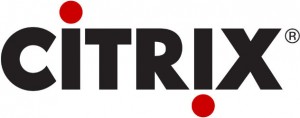 Citrix has abandoned its Olympus OpenStack distribution and will focus instead on its open-source CloudStack operating system, which it has contributed as a project under the Apache Software Foundation.
Citrix has abandoned its Olympus OpenStack distribution and will focus instead on its open-source CloudStack operating system, which it has contributed as a project under the Apache Software Foundation.
As part of the announcement, Citrix said CloudStack will continue to support Amazon’s APIs (application programming interfaces) and believes such support is crucial to the success of cloud platforms. It implied it has Amazon’s blessing.
The announcement could be seen as a blow to OpenStack, which has faced some criticism after strategic moves that alienated some users, although experts were quick to say the Citrix move might not have a significant impact on OpenStack.
Citrix is releasing Citrix CloudStack 3.0 under the Apache 2.0 license on Tuesday and also plans to offer a commercially supported distribution of Apache CloudStack. CloudStack is the open-source cloud operating system Citrix acquired along with Cloud.com last year.
Citrix said its announcement has wide support among companies already using CloudStack or that have made their products compatible with it. Fifty software and service providers including Engine Yard, RightScale, CumuLogic, Puppet Labs, Hortonworks, Opscode, Equinix, Juniper Networks and ScaleXtreme are supporting the project, Citrix said. More than 100 commercial production clouds are using CloudStack, some of which have tens of thousands of servers, Citrix said.
It believes open source is key to success for a cloud platform. “Unlike previous generations of computing, we believe this cloud platform build-out is going to be led by technologies that are first proven at scale at large production clouds and then made available to customers under an open-source license,” said Sameer Dholakia, group VP and GM of cloud platforms for Citrix.
That process has proved successful for cloud technologies like Hadoop, Hive and Cassandra, which are open-source tools for building or managing databases, he noted. “We believe the same will prove true with cloud platforms that are running these new cloud services,” he added.
Citrix thinks the opportunity is large. It hopes to emulate Red Hat, which grew itself into a billion-dollar business by selling products based on Linux. “We will be selling what we believe is likely to be a popular commercial distribution of [Apache CloudStack],” he said. Customers will want to buy such software from a large, established company like Citrix, he said.
The company expects to spend “in the seven figures” on engineering and marketing on the Apache CloudStack project, he said.
The move means Citrix is abandoning its work on its OpenStack distribution. OpenStack decided to create a foundation to back its project. The idea was to add legitimacy to the program, but the move made OpenStack less appealing to Citrix, Dholakia said.
“Citrix as a company does not believe the creation of a foundation is a trivial matter. It’s a task and a risk that is unnecessary to add to such a critical program … particularly when there is a tried and true foundation like Apache,” he said.
In addition, Citrix is firmly throwing its weight behind Amazon’s APIs. Using the same APIs means customers can more easily move workloads between Amazon Web Services and other clouds — namely, private clouds — that also support Amazon’s APIs. While OpenStack supports some Amazon APIs, it appears more interested in backing its own APIs.
“Amazon has invented and created this market. We believe the winning cloud platform will have to have a high degree of interoperability with Amazon,” he said.
Just a couple weeks ago, Amazon announced it backed Eucalyptus in its efforts to support the AWS APIs. It was the first time Amazon offered such backing for the use of its APIs. At the time, experts said that some businesses had been reluctant to use Eucalyptus because they were uncertain if Amazon approved of the use of its APIs. Without such approval, end users worried about potential intellectual property violations.
In addition, it was always possible that Amazon could make changes to its APIs that could break the interoperability between a Eucalyptus cloud and Amazon’s cloud. As part of the Eucalyptus announcement, the companies said the partnership would ensure that Eucalyptus maintained compatibility with Amazon’s APIs and that Eucalyptus would more quickly be able to support more of Amazon’s APIs.
Citrix would not say if it, too, had Amazon’s official support. But it implied that it does. “The most important component of the Eucalyptus announcement was that it was non-exclusive. I can’t say that we have a public statement beyond that,” Dholakia said.
Citrix is not turning its back entirely on OpenStack. “We will continue to play an active role in the OpenStack community,” Dholakia said. It will continue working with OpenStack on support of Citrix’s hypervisor, for instance. Also, as OpenStack components mature, Citrix could integrate some of them in its own stack, he said.
One analyst thinks the OpenStack community won’t miss Citrix. “OpenStack had several months’ opportunity to work with Citrix on merging the CloudStack and OpenStack codebases. If this announcement were going to be a huge blow to them they would have done something to avert it; in other words, I don’t think the OpenStack developers are very invested in whether Citrix stays or goes,” said Rachel Chalmers, research director of infrastructure for The 451 Group, via email.
OpenStack has big-name backers, including AT&T, Dell and HP, and it’s too early to say what impact the Citrix move will have, said Stephen O’Grady, an analyst with Redmonk. “It’s not good news for OpenStack, obviously, but it’s also very early. They’ve built some momentum for themselves and it will be interesting to see what impact this news has on that,” he said.





